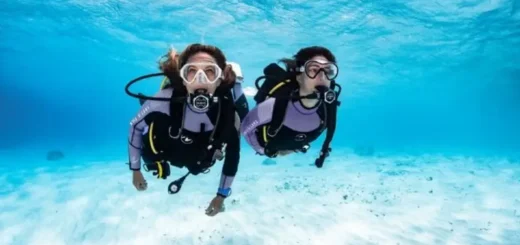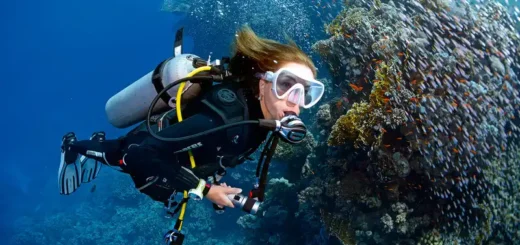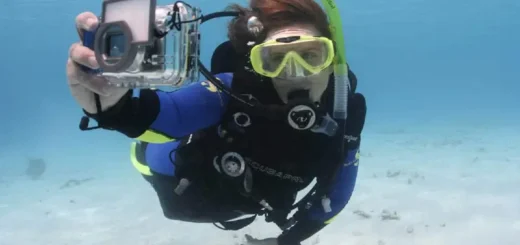How to Learn to Scuba Dive: A Step-by-Step Guide
Have you ever have dreamed of floating weightlessly like an astronaut, investigating unusual species like a field researcher, or looking for lost objects like a treasure hunter? Scuba diving can make these dreams a reality! Scuba diving is relatively easy and only requires a short period of training to get started. Follow these steps to start learning to scuba dive.
1. Determine If You Meet The Physical Prerequisites for Scuba Diving
With contemporary advances in dive equipment, medicine and training, people of all ages and sizes can safely learn to dive. Most people who have a basic level of physical fitness and are comfortable in the water can scuba dive.
There are, however, a few medical conditions which are contraindicated for scuba diving. Be sure to read the fitness for diving/ dive medical questionnaire before enrolling in a scuba diving course.
2. Choose a Scuba Diving Course
While diving (like any sport) has some inherent risks, these risks can be effectively managed when divers learn to check and use their gear properly and to follow safe diving guidelines. A wide variety of scuba diving courses is available to allow divers to start enjoying the underwater world safely.
Most scuba diving centers offer everything from “try dives” (where curious people can show up and try scuba diving in a pool with no commitment) to open water courses which certify a diver for life.
Scuba Diving Certification Agencies
There are several agencies which certify scuba divers, the two most popular being PADI and SSI. Most scuba diving courses offered worldwide are affiliated with one of these two agencies.
While both agencies offer courses which teach people how to dive safely, they differ in their approach. PADI courses tend to be more comprehensive, while SSI courses tend to be a bit cheaper.
Some divers also choose to get certified with a specialized agency such as IANTD or SDI/TDI. These agencies offer courses which are geared towards divers with specific interests, such as technical diving or cave diving.
3. Buy or Rent Dive Gear
Scuba diving is an equipment-dependent sport. A diver needs a full set of well-maintained, properly fitting scuba gear before he can start diving.
While it is possible to rent dive gear, most divers find that they dive more often and have more fun when they own their dive gear. Dive gear is not terribly expensive, and it lasts for many years with proper care.
4. Learn Essential Dive Theory
Descending into the underwater environment affects a person in ways that he may not expect. To be safe and prepared to start diving, a person must first understand how diving will affect his body and his gear.
Most scuba diving courses include a classroom session where the essential dive theory is taught. This theory includes topics such as:
How diving affects the body
The physics of diving
How scuba gear works
Dive planning and dive tables
5. Practice Simple Skills in Shallow Water
After you have reviewed dive theory with a instructor and obtained scuba gear, you will be able to take your first breaths underwater! Learning to dive requires the mastery of skills such as clearing water from your scuba mask and regulator (your breathing apparatus).
These skills are first learned in shallow water, where you can stand up if you need to. As you become more comfortable with these skills, you will be able to practice them in deeper water.
6. Make Your First Open Water Dive
After you have reviewed dive theory, obtained dive gear, and practiced some basic skills in the pool, you will be ready to make your first open water dive!
An open water dive is a dive made in the ocean, a lake, or any other body of water which is too deep to stand up in. Most scuba diving courses include at least four open water dives, which must be completed over a period of two days or more.
7. Explore the Underwater World!
Once you have completed a scuba diving course and made your first open water dive, the underwater world is yours to explore! Scuba diving can take you to some of the most beautiful and interesting places on earth.
There are many different types of diving to choose from, and you can dive as often or as little as you like. Get started today by finding a scuba diving course near you!









